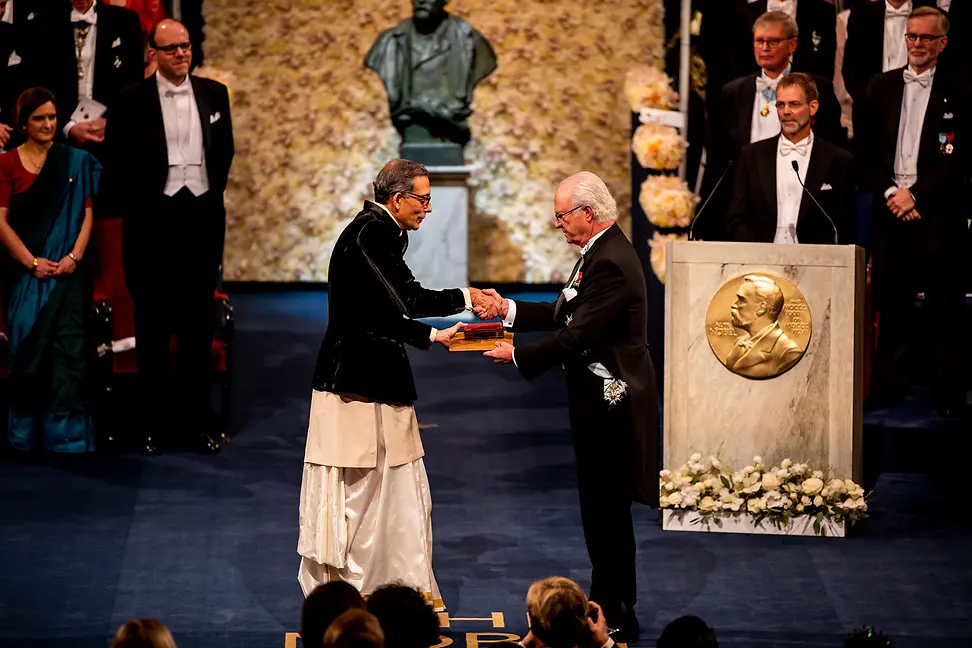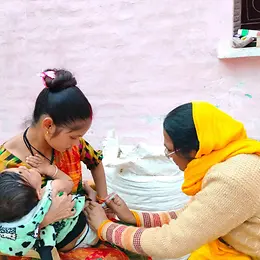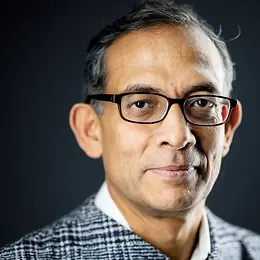- Home
-
Private banking
-
LGT career
Their experimental research methods won them a Nobel prize in 2019 for significantly enhancing our understanding of the world's poor and how to help them.

"The poor… have to be sophisticated economists just to survive."
This observation, made in the provocatively titled "Poor Economics: Barefoot Hedge Fund Managers, DIY Doctors and the Surprising Truth about Life on Less than $1 a Day", (an award-winning 2011 book they jointly authored) speaks volumes about Abhijit Banerjee and Esther Duflo.
A married couple, they are both professors of economics at the Massachusetts Institute of Technology (MIT) who have devoted their professional lives to challenging stereotypes about poverty.
The poor, they maintain, "are no less rational than anyone else - quite the contrary". Instead of pitying them, we should be "taking the time to really understand their lives, in all their complexity and richness".
According to the Nobel committee, the methods they developed (together with fellow economist Michael Kremer, who shared the 2019 prize) have not only exposed many myths about poverty and its persistence, but also "dramatically improved our ability to fight poverty in practice".

The key to their approach is breaking down the poverty challenge into smaller, more manageable questions about people's lives.
For example, should anti-malaria bed nets in Kenya be given away, subsidized, or sold at market price? How can we ensure that poor Indonesian households receive all the rice they are entitled to under a government programme?

They use randomised controlled trials (RCTs), which seek to avoid bias by setting up randomly created control groups, to evaluate the impact of policy interventions designed to address concrete questions.
Developed in the 19th century, RCTs were applied in agriculture, medicine, and political science much earlier than in economics. But when Kremer first brought them to Banerjee's attention at Harvard in the mid-1990s, the Indian-American economist quickly realized that they "offered so many possibilities that one could never get to otherwise".
Using these techniques, researchers have often uncovered surprisingly simple solutions.
One case in point: a field experiment in Rajasthan, India, where despite the availability of free polio vaccinations, poor mothers were simply not enrolling their children for the programme. By awarding each family a bag of lentils, immunisation rates increased dramatically.
In another experiment, also in India, learning outcomes for more than five million children improved when schools were provided with teaching assistants to help students with special needs.

Born in Mumbai, India, in 1961, Banerjee recalls that his radical feminist mother (who was also an economics professor) consistently urged him "to do something useful". Duflo, who was born in Paris in 1972, notes that her paediatrician mother's work for an NGO that supported children affected by war was a strong formative influence.
Both ultimately chose economics as the route to being useful.

Duflo, too, qualified at Harvard, in 1999. And it was her PhD dissertation research, which used a large-scale school expansion programme in Indonesia to study the effects of education on future earnings, that laid the foundations for the future collaboration with Banerjee.
The study reportedly provided the first causal evidence that more schooling improves earnings later in life, and "taught me a big chunk of what I know about empirical research," Banerjee has said.
Since then, the couple's empirical, evidence-based research techniques have transformed development economics.
In 2003, they co-founded the MIT-affiliated Poverty Action Lab, now known as the Abdul Latif Jameel Poverty Action Lab (J-PAL), whose primary purpose is to ensure that policies aimed at reducing poverty are informed by rigorous scientific evidence.
Headquartered in Cambridge, Massachusetts, and with regional offices in seven countries, J-PAL's programmes, which promote RCTs to assess the efficacy of policy interventions in health, education, agriculture, and a range of other fields, have reportedly impacted more than 400 million people worldwide.
Even some free-market critics of international aid have acknowledged J-PAL's work. And Duflo, who is now Abdul Latif Jameel Professor of Poverty Alleviation and Development Economics at MIT, and like her husband is a J-PAL director, has expressed the hope that the organisation's rising profile will help to expand its reach into areas like climate change.

In 2019 they published "Good Economics for Hard Times", a timely attempt in the age of austerity to make the case for intelligent policy interventions that address real human needs. More recently, Banerjee, a keen cook, has written "Chhaunk: on Food, Economics and Society".
The title borrows from a Hindi word for spices flash-fried in oil and stirred into a dish at the last minute. The book, similarly, is peppered with anecdotes and stories, especially about Banerjee's native India.
Part cookbook and part memoir, it reflects Banerjee's belief that economists can and should become more relevant to the rest of us. As he told the Financial Times in an interview late last year, "To make a world where good ideas win, we have to tell them in ways that are intelligible."